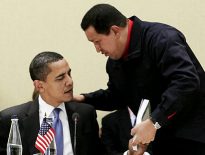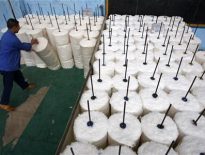(Reuters) – As a two-month battle with Heineken for control of Tiger beer risked turning ugly, Thai billionaire Charoen Sirivadhanabhakdi telephoned Lee Hsien Yang, chairman of Singapore conglomerate Fraser and Neave (F&N), the brewer’s co-owner.

After speaking to Lee, the younger brother of Singapore’s prime minister, on September 12, Charoen called Heineken to offer a truce: his companies would accept the Dutch group’s $6.3 billion bid to buy F&N and other shareholders out of Tiger beer maker Asia Pacific Breweries (APB). Charoen, the son of a Bangkok street vendor, would be left to offer $7.2 billion to add F&N’s soft drinks and property empire to his own.
Interviews with at least eight people close to the companies and the negotiations show how the warring parties came up with a deal that surprised analysts and avoided meltdown at F&N.
Charoen’s Thai Beverage, the country’s leading beer and spirits group, and allies had built up a more than 30 percent stake in F&N, and had said it was working with a partner to make an offer for all of the group – a move described at the time by one person close to the negotiations as “explosive”.
“It could have been that the Thais understood Heineken may really have been prepared to trigger the nuclear option and blow everything up. It would have been destructive for F&N,” said a person close to Heineken, the world’s No.3 brewer.
F&N shareholders are expected on Friday to approve the sale of a 40 percent stake in APB to Heineken. That leaves the Thai offer for F&N on the table, with a possible break-up of the group’s soft drinks and property interests.
BLIND-SIDED
Weeks earlier, in mid-July, Heineken had appeared blind-sided by Charoen’s bid to become F&N’s largest shareholder, giving him the clout to muddy the Dutch brewer’s long-standing alliance with F&N in Asia’s fast-growing beer market. Heineken was forced into launching an expensive offer for the majority of APB it didn’t already own to keep Charoen from muscling his way into Southeast Asia’s sixth-biggest brewer by sales volume.
Analysts broadly think Heineken’s offer is generous – at 17-18 times core profit (EBITDA) it’s above the 15-16 times paid by Anheuser-Busch InBev for control of Mexico’s Modelo in June. F&N’s board backed the offer last month, but Charoen still couldn’t be shaken off.
Frustrated by not being able to seal a deal, sources said Heineken considered walking away from its 81-year-old partnership with F&N and taking its beers with it, destroying value for both sides. Heineken’s brands make up around 30 percent of APB’s sales by volume and around half its profits. Another option was to outbid the Thais for the whole of F&N.
“I wasn’t expecting a truce. I was thinking Heineken would probably have to bid for F&N in order to be sure of gaining control of APB,” said Andrew Holland, European beverage analyst at Societe Generale.
THAI TIES
The Thai group was initially keen to work with Heineken. “Their initial plan was to buy (the) F&N (stake) from OCBC and get some stake in APB,” said one source. “F&N has a very strong regional network that fits the group’s plan to expand in regional markets, while APB is like a gift.”
With affiliates, Oversea-Chinese Banking Corp (OCBC), Singapore’s second-biggest lender, held an 8.6 percent stake in APB and was also F&N’s biggest shareholder.
But Heineken, which had the right of first refusal on APB in the event of a change in ownership, had been uncomfortable in 2010 when Japanese brewer Kirin took a 15 percent stake in F&N. It didn’t want another partner, least of all one like the Thais whose 2001 tie-up with Denmark’s Carlsberg ended in acrimony after just two years.
The relationship between Heineken and the Thais soured to such an extent that they would not meet without Lee mediating at meetings in Bangkok and Singapore, sources said. Heineken, whose Belgian CEO Jean-Francois van Boxmeer did meet Charoen, reckoned the Thais said one thing and did another, said one of those familiar with the talks.
Van Boxmeer, a fan of opera, has overseen acquisitions in Britain and Mexico since becoming family-controlled Heineken’s first non-Dutch chief seven years ago.
As the tensions ratcheted up, the Thais appeared to realise they would not wrest control of the Tiger brand and would face a bumpy ride as a partner.
“What’s the point of fighting the Dutch when Heineken has material control of the business?” said one of the people close to the Thai group. “Even if you succeed and you remain JV partners (in APB), they manage the business. The nature of the agreement is so cumbersome that you’ll be fighting all the time.”
MISSED OPPORTUNITIES
The Dutch firm could have cemented its hold on APB years ago – for a lot less money and with little opposition.
It failed in recent years to get OCBC to sell its 8.6 percent stake. Pressed by Singapore’s central bank to shed non-core assets, OCBC was a willing seller, but turned down Heineken’s overtures at S$20 to the low S$30s per share, said a source with direct knowledge of those talks.
All that changed in June, when Charoen approached OCBC through his adviser Morgan Stanley to buy the bank’s APB stake, for S$45 a share, as well as its more sizeable 22 percent interest in F&N.
The purchases fit the pattern of expanding Charoen’s drinks business and gave Thapana Sirivadhanabhakdi, the third of the billionaire’s five children and Thai Bev’s president/CEO, the chance to cut his international teeth with a big deal.
Month-long talks led by OCBC’s chief financial officer Darren Tan reached a critical stage on July 16 when the bank decided it was time to call the major interested parties ahead of a decision to sell, a source with direct knowledge of the talks told Reuters. Top of that list was F&N. Others were Kirin, F&N’s second-biggest shareholder, and Heineken, the largest shareholder in APB.
Heineken countered the next day but, not knowing how much the Thais had offered, it under-bid. “They never imagined Thai Bev would offer so high,” the source said, reflecting a view among observers that Heineken underestimated the Thai threat.
The following day, at Singapore’s Intercontinental Hotel – which is owned by Charoen’s TCC Land – OCBC signed a deal to sell to the Thais.
OCBC’s Tan said the Thai offer was the best for the two stakes. He declined to comment on behind-the-scenes negotiations with Heineken or other F&N shareholders. “We made the decision to proceed with the sale as it provided a timely opportunity to make a complete exit from these non-core assets,” he said in an emailed response to a Reuters query.
Two days later, Heineken sprang back into action, bidding for all of APB, which makes Tiger, Bintang and Anchor beers and runs 30 breweries in a beer empire stretching from Mongolia to New Zealand.
For F&N, the intensifying Tiger tussle was unsettling, and Lee, a Cambridge University graduate and former brigadier-general in the Singapore Armed Forces, took on the role of mediator to protect his shareholders. “It’s very unnerving for all shareholders, especially F&N’s shareholders,” said a source close to F&N. “F&N had to be very active in getting the necessary authority to pressure everybody to act.”
PROPERTY PORTFOLIO
The manoeuvring has raised the prospect of a break-up of F&N, which was founded in 1883 as a fizzy water company.
Without APB, it will rely on real estate for 80 percent of its earnings, about double its current contribution. Counterbidders began circling F&N, including Blackstone Group, which explored a potential bid for the property business, sources said, while Coca-Cola and Kirin sniffed around F&N’s beverage business.
Allowing Heineken to walk away with the Tiger spoils, leaves Charoen with F&N’s valuable property portfolio – an area where he has some expertise. In 2007, local media reported Charoen bought 47 of the 48 units in a luxury Singapore condominium a day before a private preview sale.
“The general offer (for F&N) was never about trying to preserve APB. It was all about preserving the non-beer food and beverage and property,” said one of the sources close to the Thais. “The game is over. (Charoen’s) TCC will keep both businesses for now. There are so many synergies … unbelievable.”
(Additional reporting by Khettiya Jittapong in BANGKOK, Charmian Kok in SINGAPORE and Denny Thomas in HONG KONG; Editing by Ian Geoghegan)




